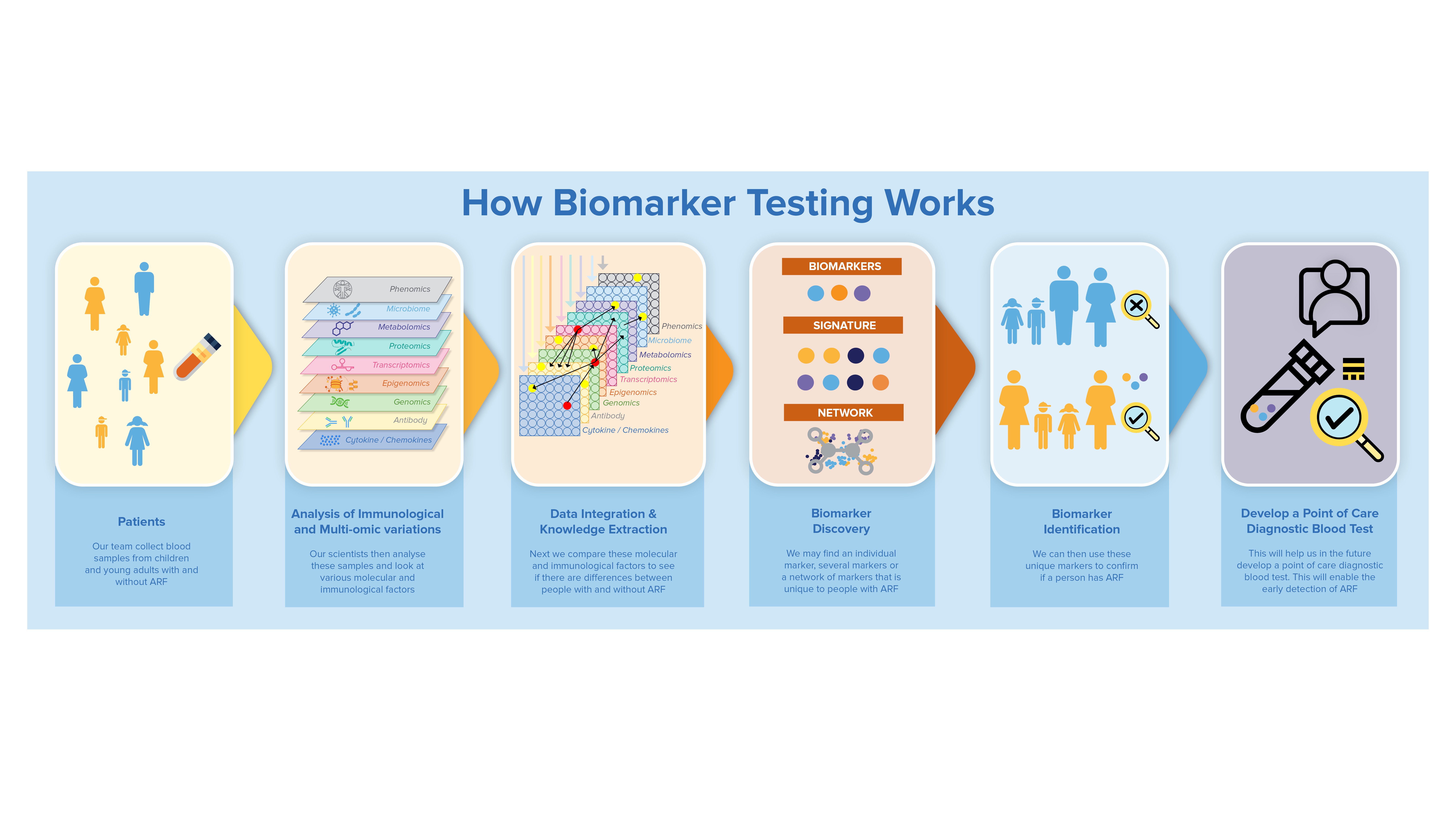The immune processes causing acute rheumatic fever (ARF) are complex and the technology to find a unique diagnostic signature has not been previously available. The START study aims to use new methods (multi-omics technologies and profiling) to test immune responses in blood samples from people with and without ARF to find the combination of biomarkers that reliably identifies ARF.
This research will inform the future development of a point of care diagnostic blood test for ARF. A diagnostic test will enable early detection of the disease leading to early intervention, with the ultimate goal of eliminating the progression to RHD.
What are multi-omics technologies and how does biomarker testing work?
The START study investigators will be using the latest advances in multi-omics technologies and immunological profiling to comprehensively test immune responses in blood samples from people with and without ARF to find a unique signature (biomarker) that reliably identifies ARF.
Recent advances in technology have created a new field of research referred to as the “omics” which has enabled the characterisation of complex biological systems at a molecular level. By looking at the DNA modifications (epigenomics), mRNA (transcriptomics), proteins (proteomics), metabolites (metabolomics) and other immunological factors in blood samples of people with and without ARF we can gain great insights in to the mechanisms contributing to the development and progression of the disease. Our team of bio-informaticians and data analysts will use sophisticated integrated data modelling to look at these factors simultaneously to discover a combination of biomarkers that can assist in the diagnosis of Acute Rheumatic Fever.
Figure 2. How Biomarker Testing Works
Antibody analysis
The antibody analysis for the study will be performed by Nikki Moreland’s group, which is located in the Infection and Immunity laboratories at the University of Auckland. This will involve analysis of antibodies specific for S. pyogenes and autoantigens and will encompass high content array and multiplex bead-based technologies.
